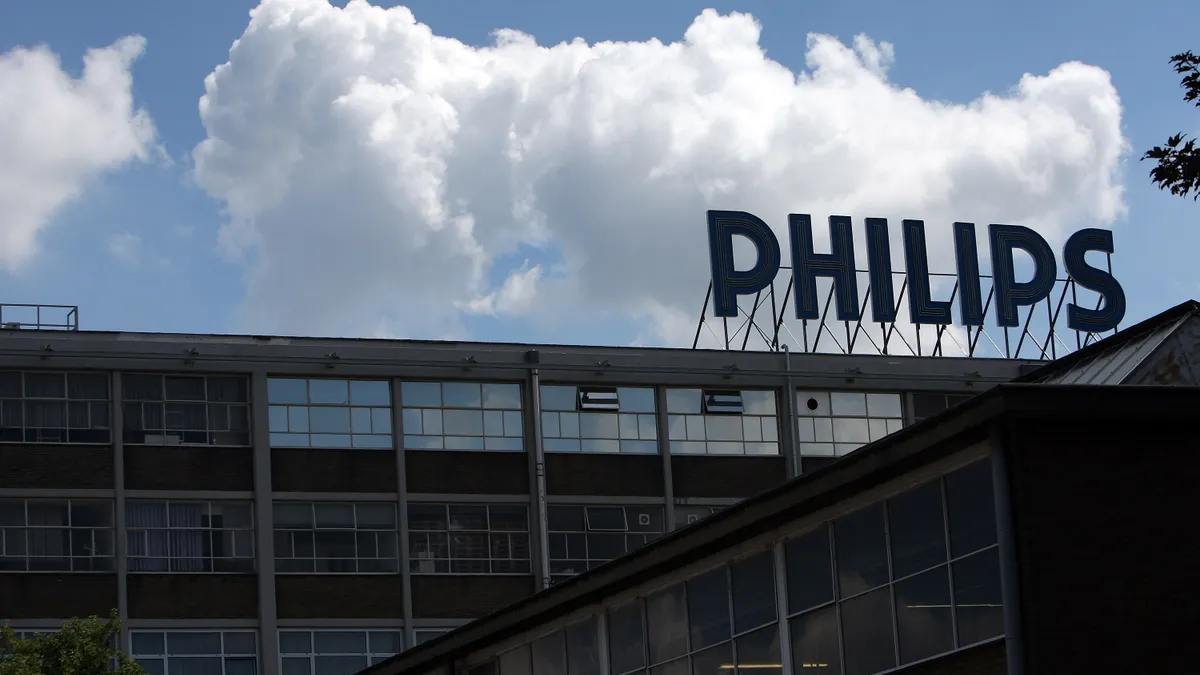Philips predicted a double-digit sales decline in China over the first half of 2025 as economic challenges experienced throughout the last year are expected to continue.
CEO Roy Jakobs told investors Wednesday on an earnings call that demand from Chinese hospitals will “continue to be impacted by the consequences of the anti-corruption and the slow implementation of the national renewal program at least into the first half of the year.”
Management reported a “significant deterioration” in demand from China in October and cut its forecast for 2024. The fourth-quarter results show the challenges continued over the final three months of the year. Double-digit declines in comparable sales and orders in China limited global growth in both metrics to 1%.
Philips’ stock was down more than 12% when the market opened Wednesday.
Stimulus activity is increasing, Philips’ funnel is progressing and there has been some growth in hospital tenders, Jakobs said. The CEO called the positive signs “green shoots” but said the company has yet to see “a trigger that would significantly change the situation for the first half of 2025.”
Jakobs wants to see a more consistent, persistent uptick before concluding the market is regaining momentum.
When asked about the second half of 2025, Jakobs shied away from making firm predictions. He said Philips is not counting on a strong rebound in China to achieve its outlook. The company is predicting the rate of sales decline will slow in the second half, resulting in a mid- to high-single-digit drop across the full year.
Multiple medtech companies have seen falling demand in China, but the composition of Philips’ business puts it under particular pressure. Weak demand from hospitals for devices such as imaging equipment is being compounded by falling sales of Philips’ personal health products. Jakobs said personal health is the “bigger part” of the drag on performance in China.
Jakobs defended Philips’ ability to compete against local imaging companies for the Chinese market. The CEO said all companies “are facing challenges with lower procurement” and highlighted the relaunch of a helium-free MRI machine and rollout of VM11 ultrasound software as events that strengthened Philips’ position.
Jakobs expects to win share in MRI and said ultrasound uptake was “good” in the quarter.
Respironics builds momentum
Philips’ problems in China overshadowed progress in other parts of the world. Order intake returned to growth, despite being dragged down by China, and the company forecast global sales will increase by 1% to 3% this year.
Jakobs said capital spending is strengthening outside of China and should drive further order growth.
The CEO also noted “quite a level of uncertainty surrounding the world.” The Trump administration’s imposition of additional tariffs on Chinese imports, coupled with the potential for the trade war to expand, is one source of uncertainty. Philips has factored the tariffs into its outlook but declined to speculate on their impact given the range of possible scenarios. Earlier steps to reduce exports from China to the U.S. have partly insulated Philips.
Jakobs also referenced the changes implemented by the Trump administration in response to a question about the timing of the U.S. Department of Justice’s investigation into its Respironics business. Philips is yet to receive details of the timing, the CEO said, and “with the current turmoil in the U.S. it has not become clearer.” Philips’ has finalized $1.1 billion in medical monitoring and personal injury settlements.
Momentum is returning to the Respironics sleep and respiratory care business as Philips resumes selling products outside the U.S., Jakobs said. The company got the green light to resume selling the devices in France this week, the CEO said, completing its return to ex-U.S. markets.
Targeting 800 million euros (about $835 million) of savings this year, the company will make “some headcount reductions,” CFO Charlotte Hanneman said on the earnings call. Layoffs will not be the biggest part of the savings, Hanneman said, but will be a result of making the company leaner.











